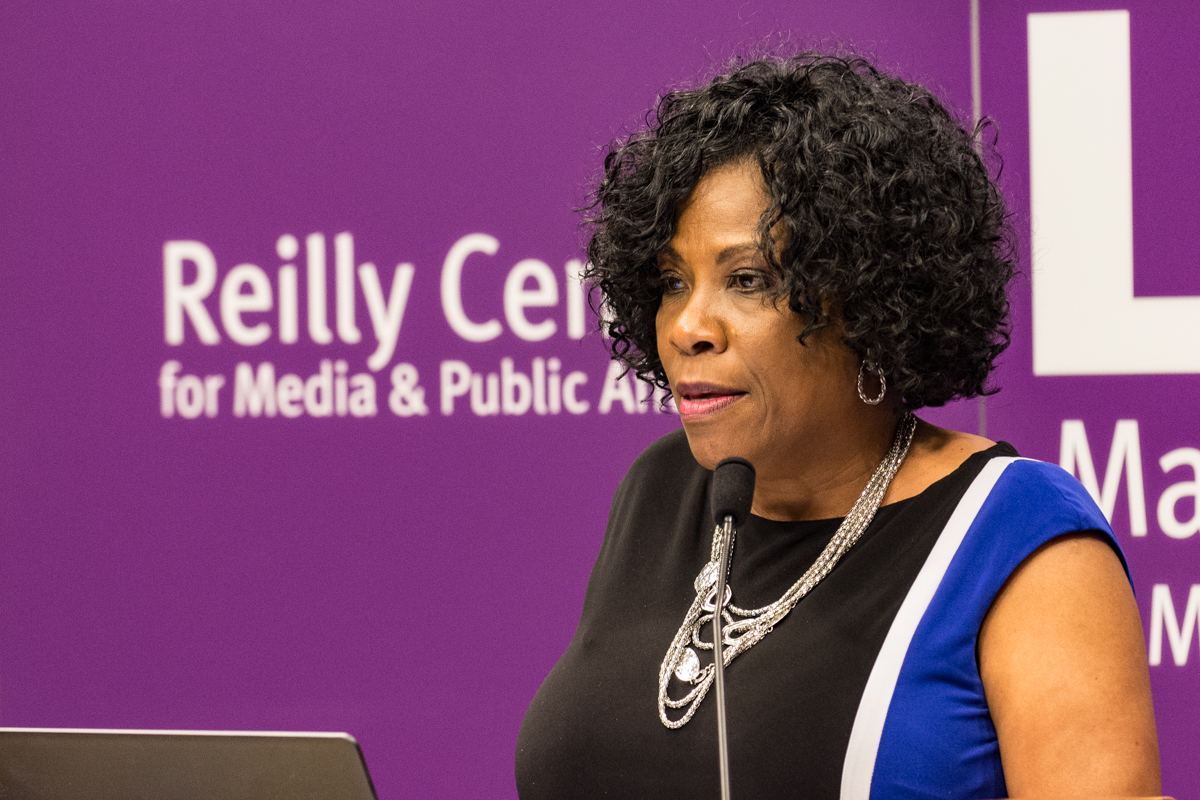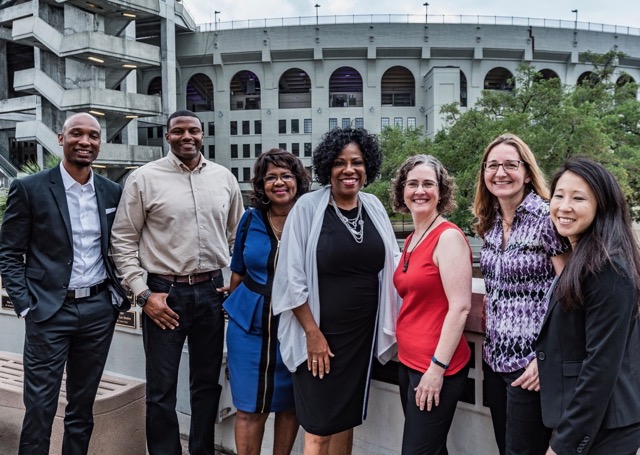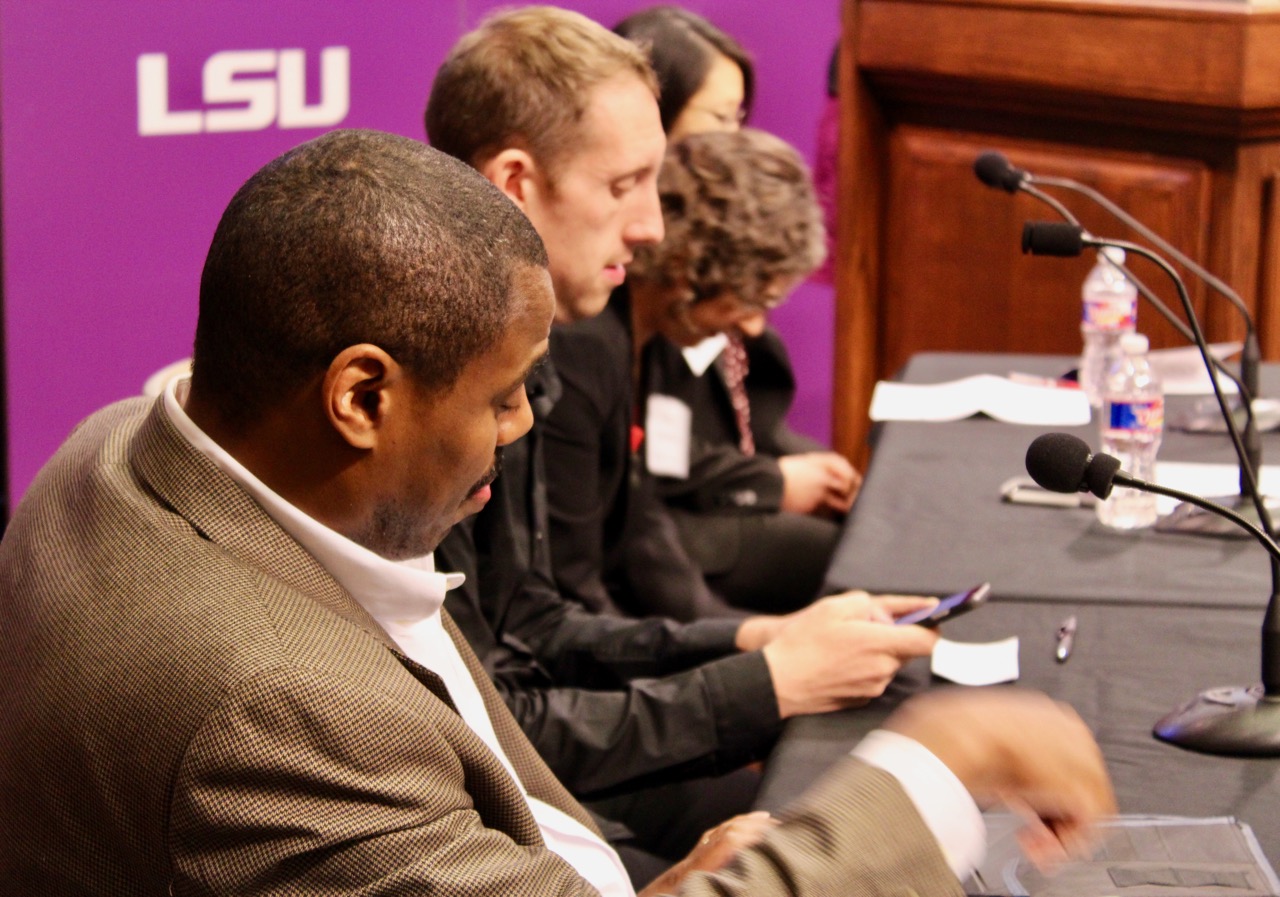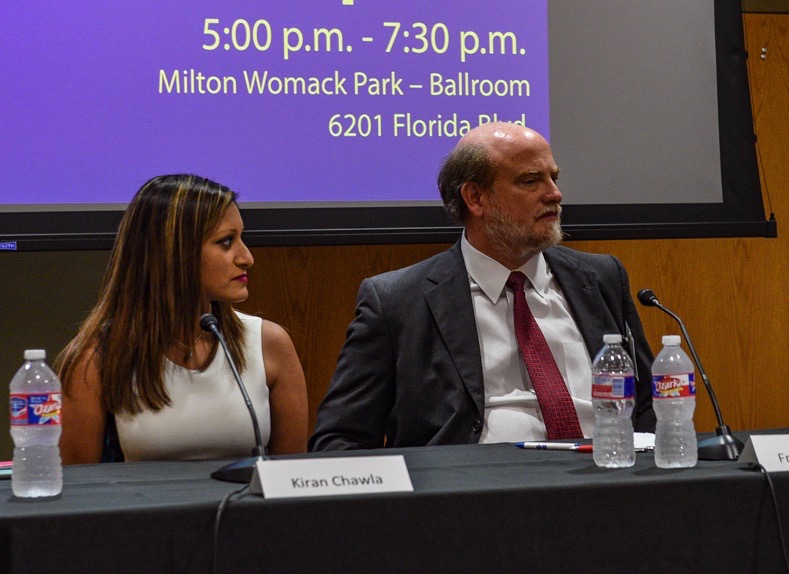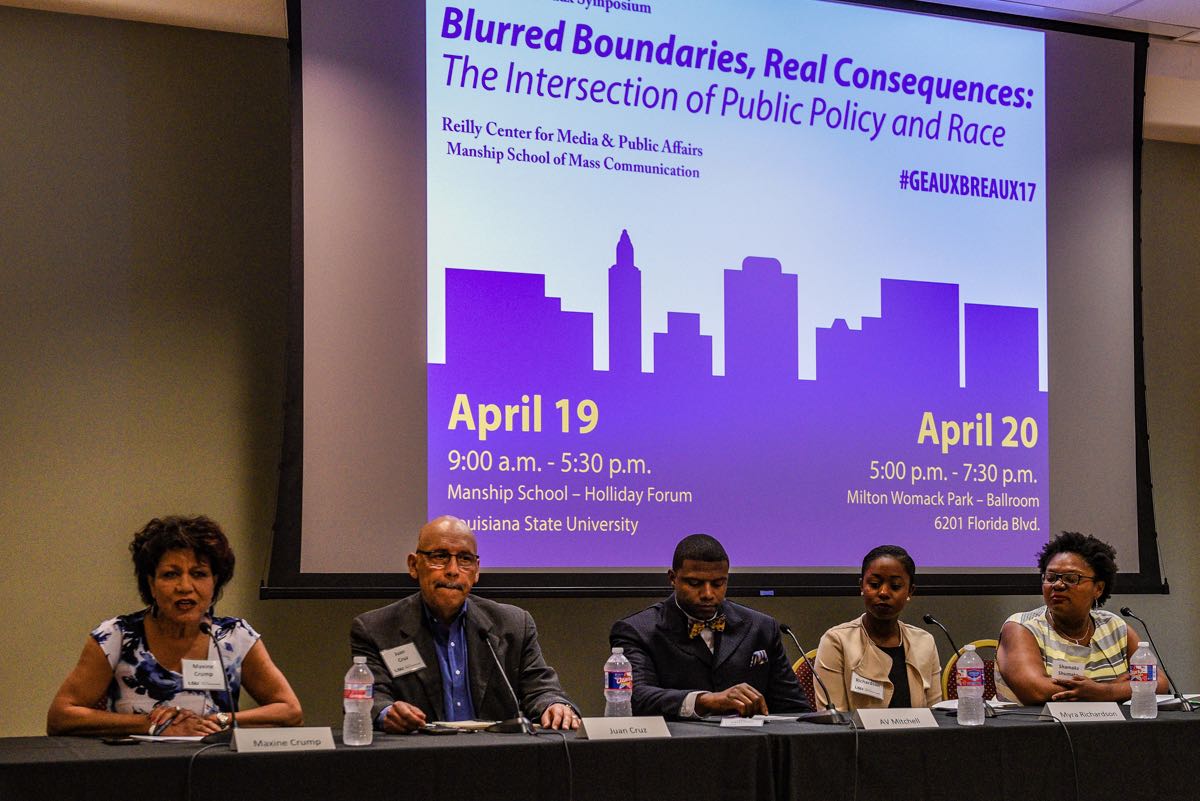2017 Breaux Symposium
Blurred Boundaries, Real Consequences: The Intersection
of Public Policy and Race
The 2017 John Breaux Symposium, Blurred Boundaries, Real Consequences: The Intersection
of Public Policy and Race, sought to facilitate dialogue on issues exacerbated by
a series of tumultuous events during the summer of 2016. The death of Alton Sterling,
a black man, at the hands of two white police officers brought deep-seated frustrations
about inequality of treatment and opportunity within the black Baton Rouge community
to the forefront of attention. The 2017 John Breaux Symposium examined underpinning
public policy issues contributing to racial inequality through expert panels and presentations.
Several panels focused on research conducted by Manship students and faculty.
Keynote Mayor-President Sharon Weston Broome
Baton Rouge Mayor-President Sharon Weston Broome, elected amid the aftermath of the
Alton Sterling shooting and widespread flooding of the Baton Rouge metropolitan area,
delivered the keynote presentation for the Symposium. She emphasized her efforts to
address racial inequalities through public policy means. Following her speech, Mayor-President
Broome visited with the Symposium guests, presenters, and the LSU community.
Manship School Resilience Study
To better understand how residents of Louisiana have reacted to the events of the
summer of 2016 and the social issues they raise, the Manship School of Mass Communication
commissioned the Community Resilience Study. Manship faculty researchers Shaniece
Bickham, Diane Francis, Michael Henderson, Martin Johnson, and Nathan Kalmoe kicked
off the Symposium with presentations on findings from this study.
The study consists of a survey administered to a statewide sample of adult Louisiana residents as well as a sample of residents in the metro Baton Rouge area: East Baton Rouge Parish, Ascension Parish and Livingston Parish. The full 2017 report can be found at www.pprllsu.com/projects/.
Race and Public Policy Panel
Top national scholars came together to discuss the intersection of race with a variety
of public policy areas including education, criminal justice, segregation, wealth,
media, health, and politics. Mary Campbell led the discussion among Drs. Kenneth Fasching-Varner, Shaun L. Gabbidon, Jackelyn Hwang, Lori Latrice Martin, Srividya Ramasubramanian, Holley Wilkin, and Ismail White, which will result in an upcoming installment of
the Reilly Center’s Media & Public Affairs book series.
Other notable features of the Symposium's first day included a capstone class presentation
on social media strategy developed for Dialogue on Race Louisiana and a presentation on LSU’s Cold Case Project, which emphasized the project's goal of reexamining the evidence of unsolved Civil
Rights era murder cases.
Media Access Panel
Local filmmaker Marcus Brown set the tone for the second day of the Symposium with a screening of his documentary,
BetterR – The Newsroom, which featured the challenges that intense, newsworthy moments
like the shooting death of Alton Sterling produce in local newsrooms. This screening
was followed by a Media Access Panel, moderated by Ed Pratt, which gathered local media representatives Kiran Chawla, Fred Kalmbach, Tim Morris, Stephanie Riegel, and Cheryl Stroy, as well as local community leaders Maxine Crump, Juan Cruz, A.V. Mitchell, Myra Richardson, and Shamaka Shumake to examine how media outlets cover community issues. A secondary
focus of the panel brought attention to ways in which members of Louisiana’s diverse
communities can best connect with their local media outlets.
